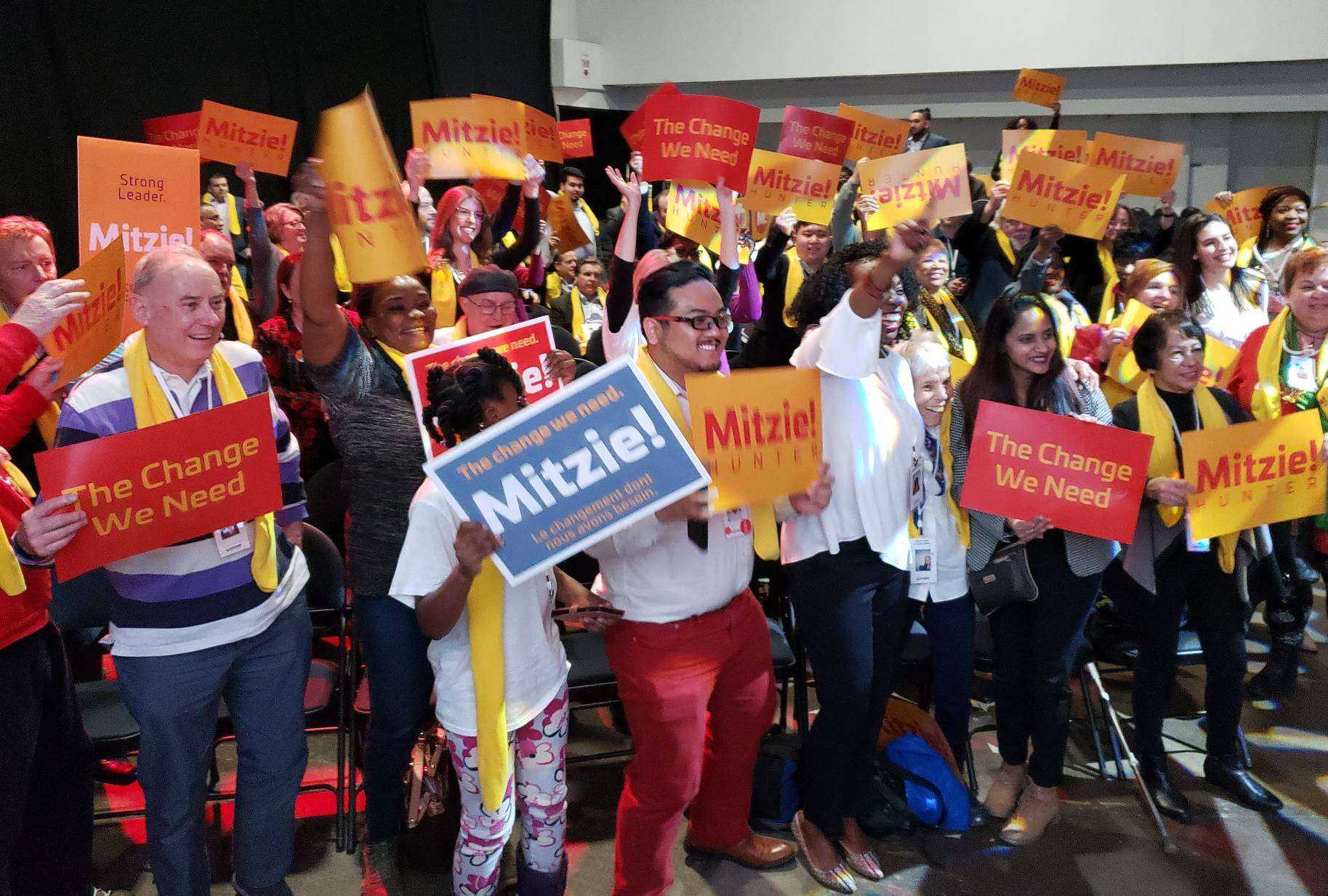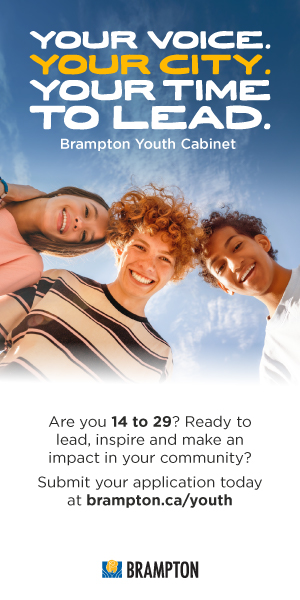on
BY SIMONE J. SMITH
Overwhelmed, excited, and observant. This is the only way to explain how I felt when I arrived at the Ontario Liberal Party Leadership Convention on Saturday, March 7th, 2020.
It was a three-day event that had commenced on the Friday, and when I arrived at The International Centre, located at 6900 Airport Road, Mississauga, Ontario, the parking lot was packed. All I saw as I was driving to find parking was a sea of colour; each person there gearing up to support the person who they thought would be fit to run against Doug Ford to clinch the coveted position of Premier of Ontario.
The Toronto Caribbean Newspaper was invited by the Mitzie Hunter Delegation to cover the convention. For those who do not know, the leadership convention is a meeting of party members to select a leader of a party. This year the delegates were: Steven Del Duca, MPP Michael Coteau (Don Valley East), MPP Mitzie Hunter (Scarborough Guildwood), Kate Graham, Alvin Tedjo, and Brenda Hollingsworth.
In the upcoming election, it has been decided that Steven Del Duca will be representing the Liberal Party. He had enough to win on the first ballot, and he admitted that going up against Doug Ford in the 2022 election would be tremendous task.
As a multicultural and multi-faith country, it is important that we have leaders who reflect our incredible diversity. These leaders are meant to: inspire people, let the community know that they are trustworthy, and build confidence in their constituents that their individual voices are being heard. The question is; if certain members of our greater community are not visible, how are they being heard?
The African Canadian community is the most targeted groups for hate crimes in Canada. In a report put out in 2017 by the Working Group of Experts of People of African Descent, African Canadian children are living in poverty at a rate of 33% (Caribbean heritage), and 47% (continental African heritage), compared to 18% of white Canadian children living below the poverty line. It has also been documented that from 2005–2015, there was a 71% increase in the federal black prison population (Vicky Mochama, October 19, 2019, Globe and Mail).
I bring this up because one disturbing observation that I made was that although we had two strong African Canadian Candidates, in the sea of over 2,000 people, there was very little African Canadian representation. As a people we deal with many inequalities, yet we are the ones with little to no voice.
Our history shows that we have fought our way to have our voice heard in the political space:
- In 1834, black men earned the right to vote with the abolition of slavery
- In 1859, Abraham Shad became the first African Canadian to be elected to a municipal government
- In 1968, Lincoln Alexander became the first African Canadian Member of Parliament
- In 1972, Rosemary Brown became the first African Canadian Woman elected in Canada
- In 1993, Jean Augustine became the first African Canadian Woman elected to the Parliament of Canada
- In 2011, Vivian Barbot became the first African Canadian to lead a Canadian Federal Political Party with parliamentary representation
This list is only a handful of the great men and women who have stood for us, and had a seat at the table to make crucial decisions that would affect us as a people.
As I stood gawking at the crowd, I looked at the two sections that hosted our two African Canadian candidates, and my heart dropped. It was truly disappointing to see that there was such a minimal turnout from members of our community to support two leaders who were battling to make sure our voices were heard.
MPP Michal Coteau has always been a strong voice for the African Canadian community. He realized that Premier Doug Ford has a lot of people who are loyal to him and his party, which is why building a coalition in the province, would be the only way to exceed the support given to Premier Doug Ford.
His platform was a move towards free public transit, pursuing more legislation on crypto currency, artificial intelligence and digital privacy for both young people and adults. Unfortunately, the support was not there for MPP Michael Coteau, and he was not chosen as our representative. I was happy to see that he had a group of young people who had travelled from out of the city to come and support him at the convention.
Our second candidate was the beautiful and charismatic MPP Mitzi Hunter. Well aware of the challenges, she entered the race thoughtfully. She knew that the only way to truly understand the needs of the people was to go and hear the needs of the people. She visited places like Sarnia and the far north, but the big push of her campaign concerned the proliferation of gun violence in the Greater Toronto Area.
I had a chance to speak with MPP Mitzi Hunter and despite not being chosen to represent the party she was in great spirits. “I feel proud to have run such a successful campaign. On Monday, I was right back in the legislative fighting for the needs of our communities. It has been an incredible process and a great learning experience for me. I had great volunteers and team members, and I now know parts of this province that I hadn’t before.”
During our dialogue, I spoke with MPP Hunter about my observations at the convention. She politely let me voice my thoughts and responded calmly, and diplomatically, “To change we have to take action. We must have the confidence and courage to step forward and put our names in for public office. It is important that the community gets involved and this includes the young people of this province. One way you can do this is by visiting my website and clicking on the link labelled Get Involved. We have to get into the race, and we need to get in quicker.”
I couldn’t agree more. Regardless of the party that you want to run with, we as a community have to do something. It would be great to see more of the African Canadian community at events like this, showing numbers and being a presence. It is time for us to show up!
Stay in the loop with exclusive news, stories, and insights—delivered straight to your inbox. No fluff, just real content that matters. Sign up today!
We, as humans are guaranteed certain things in life: stressors, taxes, bills and death are the first thoughts that pop to mind. It is not uncommon that many people find a hard time dealing with these daily life stressors, and at times will find themselves losing control over their lives. Simone Jennifer Smith’s great passion is using the gifts that have been given to her, to help educate her clients on how to live meaningful lives. The Hear to Help Team consists of powerfully motivated individuals, who like Simone, see that there is a need in this world; a need for real connection. As the founder and Director of Hear 2 Help, Simone leads a team that goes out into the community day to day, servicing families with their educational, legal and mental health needs.Her dedication shows in her Toronto Caribbean newspaper articles, and in her role as a host on the TCN TV Network.













